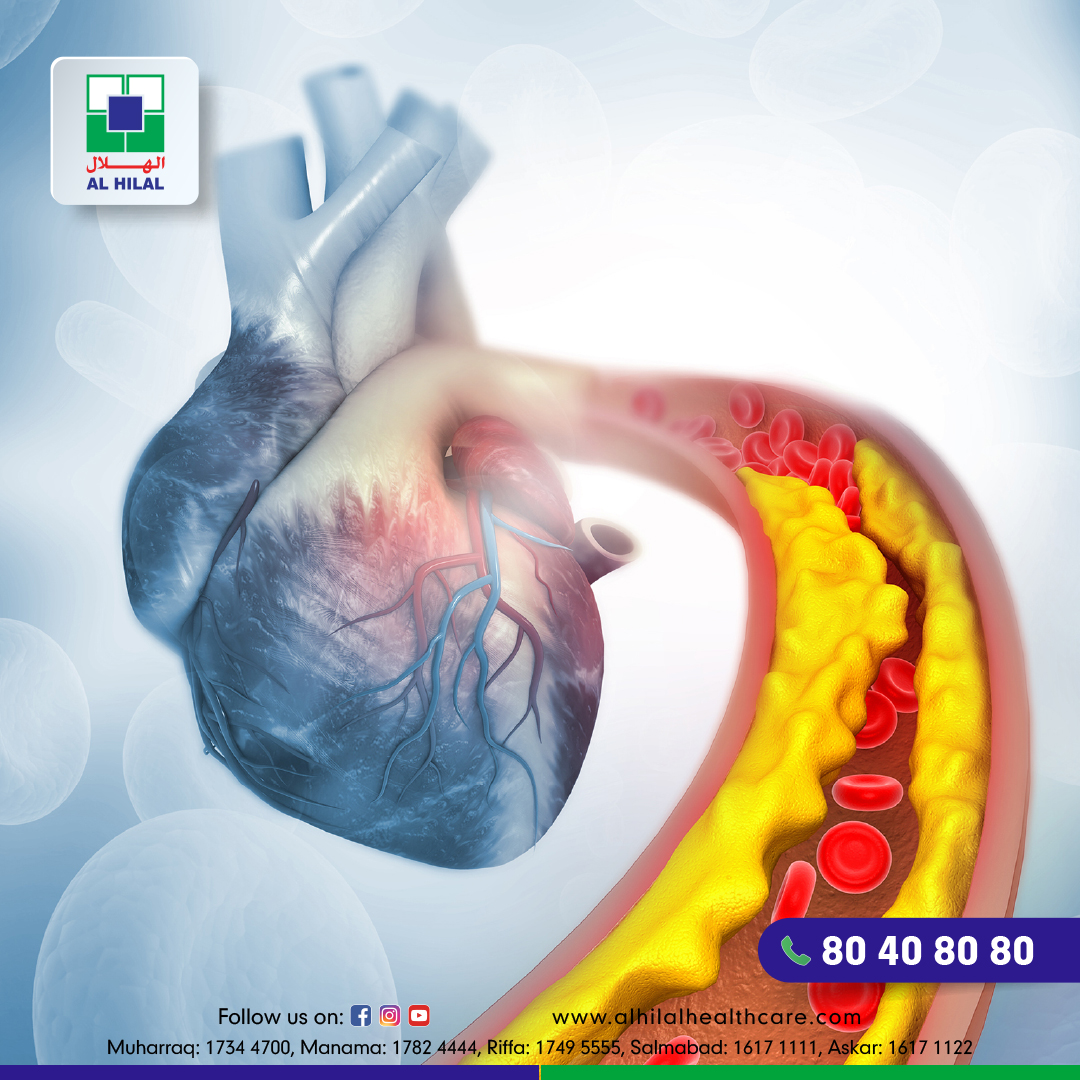What is High Cholesterol?
Cholesterol is fat-like, waxy substance, found in cells of the body. It is produced by liver, and is also found in some food items, including diary and meat. There are two types of cholesterol
- Good and healthy cholesterol (HDL- high density lipoprotein), that absorbs extra cholesterol in body and transports it to liver for flushing.
- Bad cholesterol (LDL- low density lipoprotein), that contributes to building of plaque, clogging arteries, and causing risk of serious health problems.
Some levels of cholesterol are required by body to function properly, however, excessive amount of cholesterol in blood can increase risk of coronary heart disease. High cholesterol levels lead to development of fatty deposits in the blood vessels, making it difficult for blood to flow through arteries. Sometimes they can also break, forming a clot that can cause stroke or heart attack.
High cholesterol means that the total cholesterol in your body is 200mg/dL or more. However, to further breakdown the category of high cholesterol levels, there is ‘borderline high’ and ‘near optimal’. If the cholesterol level is close to normal, it can be managed easily through certain dietary and lifestyle changes.

High Cholesterol Causes
High cholesterol causes include several factors that are in human control, like unhealthy diet, obesity, and inactivity. However, there are certain other factors as well, that are not in human control, including genetic makeup that makes it difficult for body to remove LDL or to break it down.
Factors that mainly contribute to high cholesterol levels include
- Obesity
- Poor diet
- Smoking
- Lack of exercise
- Advancing age
- Alcohal
Certain medical conditions that can lead to high cholesterol levels are
- Diabetes
- Chronic kidney disease
- AIDS/ HIV
- Lupus
- Hypothyroidism
- Cancer
- Acne
- High blood pressure
- Organ transplant
- Irregular heart rhythms
High Cholesterol Symptoms
Unfortunately, there are no early high cholesterol symptoms- mostly it results in emergency events, like stroke or heart attack. These events do not occur until the high cholesterol level forms plaque in the arteries, leading to serious complications.
As there are no early signs of high cholesterol, the only way to detect is blood test. It is advised to get blood cholesterol tested every 4 to 6 years, after you turn 20- more frequently if there is family history of high cholesterol.
High Cholesterol Symptoms Feet
One of the most common signs of high cholesterol is high cholesterol symptoms feet. Major high cholesterol symptoms feet include
Peripheral Artery Disease: reduces or blocks blood flow in limbs (arms and legs) as well as pelvis. This causes painful walking, cramps while moving, discoloration and hair loss in legs and feet.
Diabetic Neuropathy: nerve damage linked to diabetes. This causes reduced sensation and wounds on feet and can also lead to ulcers.
Xanthomas: fatty growth developing under the skin, most commonly in hands, feet, knees, and elbows. These growths can be of different sizes, and usually yellow or orange color. They are not painful but can cause itching and discomfort.
High Cholesterol Prevention
Certain lifestyle changes can assist in high cholesterol prevention, including
- Low salt diet, with emphasis on vegetables, fruits, and whole grains
- Using good fats in moderation, like fish (salmon and mackerel), seeds and nuts
- Maintain healthy weight and losing some extra pounds
- Avoid smoking
- Include exercise in daily routine
- Drink alcohol in moderation, although avoiding it completely is preferred
- Manage stress and maintain good mental health
High cholesterol foods to avoid
Fatty food, especially those containing saturated fats are categorized as high cholesterol foods to avoid. These include
- Sausages, meat pies and fatty meat
- Red meat, pork, beef, and lamb- high in saturated fats
- Whipped cream made with whole milk
- Processed meats
- Lard and butter
- Fried food
- Commercial baked goods
- Hard cheese (including cheddar cheese) and cream
- Biscuits and cakes
- Food items containing palm oil and coconut oil
High Cholesterol Treatment
For high cholesterol treatment, the first step is diet and lifestyle change- including healthy eating, getting physically more active, quitting smoking, and losing weight (if the patient is over-weight).
However, if the cholesterol levels remain high, the next step is use of medication. The choice of medication would depend on several personal risk factors of the patient, including age, health conditions as well as possible side effects.
It is essential to maintain a healthy lifestyle, and check with your healthcare provider on regular basis, for early diagnosis, management of symptoms and proper treatment- to avoid any serious complications.
Al Hilal Hospital Bahrain, Department of Internal Medicine
If you want to get tested for high cholesterol, consult internal medicine doctor, for early diagnosis.
At Al Hilal Hospital Bahrain, Department of Internal Medicine, we have highly qualified and experienced doctors, professional staff members, well equipped laboratories, and modern facilities- to provide outstanding healthcare services for all our patients. Our internal medicine doctors have proven record of accurate diagnosis and treatment, using the most efficient approach. Contact Al Hilal Hospital Bahrain, Department of Internal Medicine today, and get consultation with the best internal medicine doctor in Bahrain.

